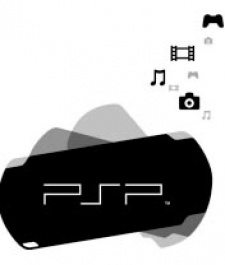Ever since Nintendo starting selling as many DS units as it could produce, commentators have been eager to write PSP off as a failure.
It's certainly true Sony is unlikely to have anticipated Nintendo would offer such a stern defence of its handheld crown when its until-then-indestructible PlayStation brand turned portable in 2004, but PSP is no flop.
Indeed, though software sales have rarely been spectacular and truly seminal games are a particularly rare beast, Sony has managed to shift an estimated 60 million PSPs around the globe over the last five or more years a tally, it has to be said, even PS3 will do well to top.
As a result, PSP has earned its place as a format worthy of the PlayStation name.
It may not have all too many years left in it making Sony's continued efforts to pitch it as an iPhone killer especially fruitless but there's no doubt it's enjoyed some success in its lifetime, sales in Japan a particular highlight.
It's PSP 2 that Sony should now focus its attention on. Or, rather, whether there actually needs to be one in the first place.
A tale of two strategies
Even the most amateur of analysts couldn't fail to see there's something of a power struggle going on within Sony at the moment.
The Japanese giant is intrinsically aware of the impact both iPhone and Android have had on the handheld market over the course of the last couple of years, but just how it intends to combat this new challenge to its business appears split.
On the one hand, there's the prospect of PlayStation Phone. Its implementation aside, the mere prospect of an Android powered PlayStation branded handset is an enticing one, the combination surely a genuine threat to iPhone's app ascent.
But it would mean a radical departure from Sony's current PlayStation set-up. For starters, PlayStation Phone would fall under Sony Ericsson's remit, its software also delivered via download rather than disc.
While PSPgo might suggest Sony is keen on such a strategy, PlayStation CEO and chairman Kaz Hirai has already claimed physical media remains the focus for the time being.
Piece together all the potential clashes between Sony's PlayStation business and the operations of Sony Ericsson, and suddenly a PlayStation Phone seems like one risky, and potentially rough, ride.
The problem is, if Sony chooses to forgo any flirtation with the smartphone space - opting instead to put its weight exclusively behind PSP 2 - it remains to be seen how it will manage to fight its corner against both 3DS and iPhone all at the same time.
Choosing the right enemy
PSP itself has proven incapable of taking on both markets at once. Both its functionality and the nature of its software means it's naturally ill suited to a war with Apple and Android.
Efforts to pitch both PSPgo and Minis as an alternative to iPhone's app culture have proved pointless PSP simply can't offer the immediacy of the App Store's line-up.
Now the latest talk suggests PSP 2 is to feature touch-controls on the back of the device, the screen presumably kept free to stop it turning into smudge city.
But this can only be a compromise a successor to a format designed to take on DS being stretched every which way to enable it to nullify the threat of iPhone at the same time.
It's plainly not going to work. If Sony insists on fighting Nintendo in the handheld arena, then PSP 2 may well be the way to go, but its effectiveness will be called into question if the firm continues to bolt on extra features pitched at the smartphone market.
A new hope?
As such, PlayStation Phone whether on Android or, indeed, in any form whatsoever is no longer merely an interesting idea, it's a necessity.
The mobile arena is going to become an evermore important space in the coming months and years for Sony, with Microsoft's Windows Phone 7 set to take cross-functionality between consoles and mobiles to whole new levels.
It's almost an entry by stealth for Xbox, with all the components of 360's legacy XBLA, achievements, gamerpoints and more appearing in the mobile space for the first time.
Without a PlayStation Phone, Sony will simply be scrapping from the sidelines, serving up a format that attempts to offer an alternative to smartphones rather than engaging in what's an especially lucrative market first hand.
It's what Sony does now that may well determine just how PSP is remembered. If the company simply replicates its mistakes with PSP 2, then its entire handheld business will be nothing more than a footnote in the story of DS's dominance.
Take on iPhone, however, and Sony's first handheld could well be seen as the predecessor to something all the more prosperous in the years to come.
Opinion: PSP is no failure, but PSP 2 just might be
Sony needs to re-evaluate its handheld business



















